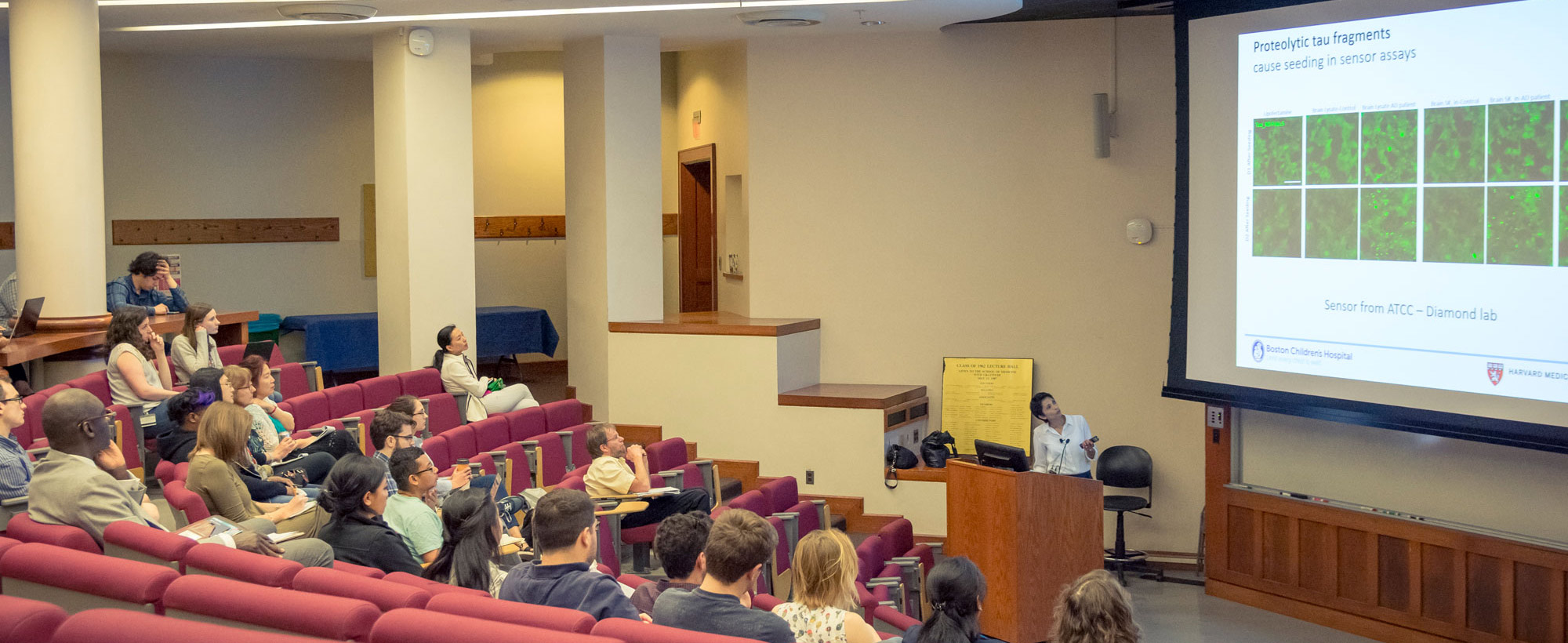
Judith Steen, an Associate Professor of Neurology at Harvard Medical School, spoke at Penn at the beginning of May. Dr. Steen has conducted research in the field of proteomics (the study of the structure and function of proteins), as well as the systems biology of proteopathies, or diseases due to abnormal protein aggregations. In particular, she is interested in tauopathies that involve pathological aggregation of a protein called tau in the brain. Tauopathy is a molecular hallmark for Alzheimer’s disease, certain types of frontotemporal dementia, progressive supranuclear palsy and many other neurodegenerative disorders. Given its importance, tau protein and the protein coding gene MAPT are widely studied by researchers to understand the molecular mechanisms of neurodegeneration and find novel therapeutic strategies. She has also worked on neurodegenerative diseases such as Parkinson’s disease, corticobasal degeneration, and spinal muscular atrophy. PNGC was pleased that Dr. Steen could visit and share insights on proteomics data and what it means for pathology and tauopathy.
Tau protein plays important roles to stability of microtubules that form cytoskeletons and are important for cell structure and a wide variety of cellular mechanisms. Dr. Steen focused her discussion on how tauopathy is modulated in the cell. She first explained that the central nervous system is limited in its regenerative mechanisms, which is why it is quite susceptible oxidative stress and damage to its cells. Many diseases that develop from this damage are proteopathies, and in some cases the abnormal proteins can propagate. Normally, as these abnormal proteins accumulate, they are destroyed through the process of autophagy that involves cell regulating itself to eliminate unnecessary and dysfunctional components. However, the process of aging can affect these clearance mechanisms in the cell, and this is a possible cause for tauopathies in the brain.
In 2016, Dr. Steen and her colleagues developed FLEXITau, an approach for detecting and quantifying post-translational protein modifications, as a response to this problem. FLEXITau measures a class of protein modifications called phosphorylation and creates a heatmap of modifications across the tau protein to identify and quantify the extent of the modifications. Dr. Steen’s team hypothesizes that tau is cleaved by proteases (enzyme proteins that breaks down other proteins), these cleaved fragments of tau are prone to aggregation in the cell and lead to tauopathy, and tau phosphorylation may regulate this process. FLEXITau technology could lead to novel therapeutics as well as help significantly in identifying early onset of neurodegenerative diseases.